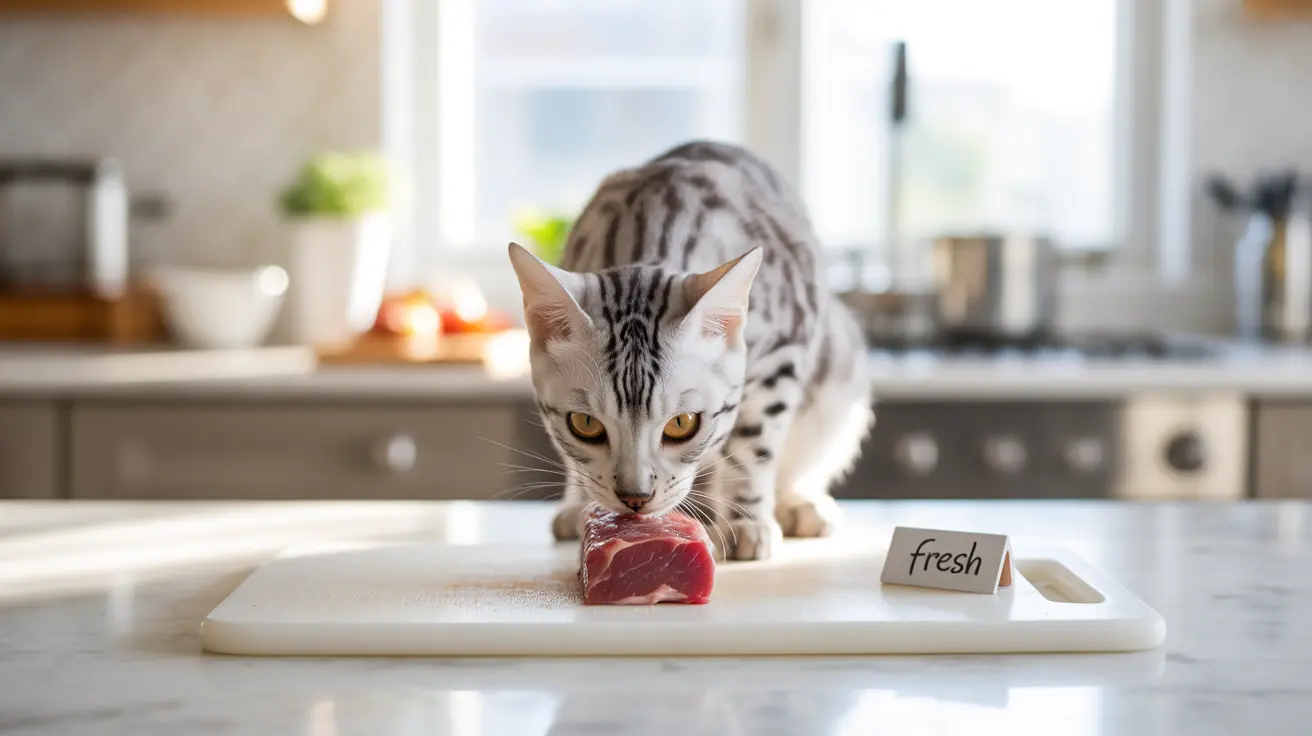Understanding Raw Beef and Cats
As obligate carnivores, cats naturally crave meat, which often leads pet owners to consider feeding them raw beef. While this might seem like a natural choice given cats' evolutionary history as hunters, the safety and appropriateness of raw beef for domestic cats requires careful consideration.
Modern domestic cats have different needs and vulnerabilities compared to their wild ancestors, making the decision to feed raw beef more complex than it might initially appear. Let's explore the complete picture of raw beef consumption for cats, including both risks and potential benefits.
Health Risks of Raw Beef for Cats
Bacterial Contamination
Raw beef can harbor dangerous bacteria like Salmonella, E. coli, and Listeria. These pathogens pose serious health risks to both cats and their human family members. Even fresh, high-quality beef isn't guaranteed to be bacteria-free, and cats can become severely ill from these contaminants.
Parasitic Infections
Raw beef may contain various parasites, including Toxoplasma gondii and different types of worms. These parasites can cause serious health issues in cats, particularly in those with compromised immune systems or existing health conditions.
Nutritional Considerations
Complete Diet Requirements
Raw beef alone doesn't provide all the nutrients cats need for optimal health. Cats require specific amounts of taurine, vitamins, minerals, and other nutrients that aren't adequately supplied by raw beef alone. A balanced diet is crucial for preventing nutritional deficiencies.
Proper Portion Control
If you choose to include raw beef in your cat's diet, it should only comprise a small portion of their overall food intake. The majority should still come from nutritionally complete commercial cat food.
Safe Handling Practices
If you decide to feed your cat raw beef despite the risks, following strict safety protocols is essential:
- Purchase fresh, human-grade beef from reputable sources
- Store raw meat properly at appropriate temperatures
- Use separate cutting boards and utensils for raw meat
- Clean all surfaces thoroughly after preparation
- Wash hands before and after handling raw beef
- Discard any uneaten portions after 30 minutes
Safer Alternatives
Instead of raw beef, consider these safer options:
- Cooked lean beef (without seasonings)
- High-quality commercial cat food
- Veterinary-approved raw food alternatives
- Fresh-cooked homemade cat food (with veterinary guidance)
Frequently Asked Questions
Is it safe to feed my cat raw beef, or does it carry health risks?
Raw beef carries significant health risks for cats, including bacterial contamination and parasitic infections. While some cats may tolerate it, veterinarians generally recommend against feeding raw beef due to these safety concerns.
What are the common bacterial and parasitic dangers of feeding raw beef to cats?
The main dangers include Salmonella, E. coli, Listeria, and parasites like Toxoplasma gondii. These pathogens can cause severe illness in cats, leading to symptoms such as vomiting, diarrhea, and fever.
How can I safely prepare raw beef if I choose to include it in my cat's diet?
If you decide to feed raw beef, use human-grade meat, maintain strict hygiene practices, store properly, and follow proper food safety protocols. However, it's safer to choose cooked alternatives or commercial cat food.
Why do veterinarians generally advise against feeding raw beef to domestic cats?
Veterinarians discourage raw beef due to the high risk of foodborne illness, potential nutritional imbalances, and the availability of safer, nutritionally complete alternatives designed specifically for cats.
Can feeding raw beef meet all my cat's nutritional needs compared to commercial cat food?
No, raw beef alone cannot provide all the nutrients cats need. Commercial cat foods are specifically formulated to meet feline nutritional requirements, while raw beef may lack essential vitamins, minerals, and amino acids.
Conclusion
While cats are natural carnivores, feeding them raw beef comes with significant risks that typically outweigh potential benefits. The safer choice is to stick with commercially prepared cat food or cook beef thoroughly before feeding it to your cat. Always consult with your veterinarian before making any major changes to your cat's diet.






